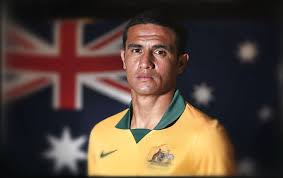By Mark Baber
March 9 – China’s domestic league kicked off this weekend, with the clubs having spent twice as much as ever before during the winter transfer window, with a major infusion of foreign talent and with the country’s political leadership committed to a reform programme to achieve the triple aims expressed by Chinese President Xi Jinping in 2011: for the People’s Republic to qualify for, host and finally win the World Cup.
Chinese Super League clubs reportedly spent €122.2 million bringing in new talent during the recent transfer window, double last year’s figure and propelling the league into second place in the world, trailing only the English Premier League.
Much of the transfer activity has revolved around champions Guangzhou Evergrande, for whom Fabio Cannavaro will be hoping to continue the success achieved by the departing Marcello Lippi, and Sven-Goran Eriksson’s Shanghai SIPG.
Cannavaro has brought in Brazilian Ricardo Goulart for $17 million – a record fee for a Chinese club as well as Alan for $12.3 million.
Eriksson has brought Argentina’s Dario Conca back to China from Fluminese and signed Brazil’s Davi from Guangzhou Evergrande and South Korea’s Kim Ju-young from FC Seoul.
The highest profile name amongst the 47 imports is Tim Cahill (pictured) who made his Super League debut in Shanghai Shenhua’s 6-2 victory over Shanghai Shenxin on Sunday night in the Hongkou stadium.
Chinese football is enjoying a period of optimism as President Xi Jinping and China’s Central Reform Group have turned their attention to football, announcing “more efforts should be made at the grassroots level to nurture young talents and to ensure the integration of professional clubs, school teams and amateur teams.”
Recognising that China has punched well below its weight in international football the leadership argues that “China must overcome its ‘defective system’, which has impeded its progress in soccer, and provide better ‘institutional guarantees’ for its development.”
The reasons for China’s poor performance in football (and other team sports) relative to its population size and the popularity of sports amongst the masses, are the topic of some debate, with some blaming corruption, the unwillingness of parents to allow children to waste time on the football pitch or lack of infrastructure. A number of factors are likely at play, including Chinese group dynamics which tend to emphasise fixed hierarchy, ‘guanxi’ and maintaining face rather than competition, teamwork and promotion on the basis of merit.
In any case, the renewed emphasis on youth development, an improved integration of school, amateur and professional clubs and the new wealth of the Chinese Super League should eventually pay dividends in improved international results – opening the way for President Xi’s dreams of World Cup glory to be realised.
Contact the writer of this story at moc.l1745056420labto1745056420ofdlr1745056420owedi1745056420sni@r1745056420ebab.1745056420kram1745056420


